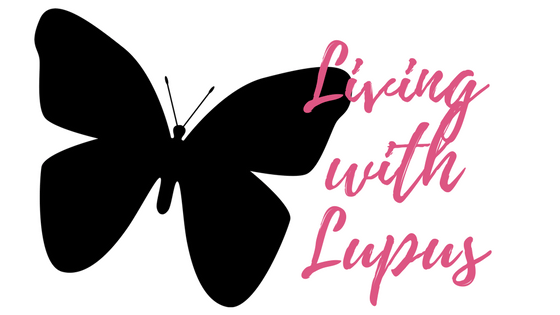What is Lupus?
Living with Lupus is not easy; it is a complicated disease as it attacks the immune system of an individual. As per statistics by Lupus Foundation of America, more than 5 million people, across the globe, suffer from this disorder. Although women are primarily affected by Lupus; men and children are also at the risk of suffering from this disorder.
Lupus is known as a chronic autoimmune disease. It can affect and damage any part of the body, such as joints, skin, internal organs and so on. The symptoms of this disease can last for an extended period, sometimes up to many years. Furthermore, this disease is difficult to diagnose as it’s symptoms impersonate the symptoms of numerous other diseases.
The immune system of a healthy person protects their body from foreign bodies and combats the symptoms of numerous illnesses. Healthy white blood cells in our body can recognise these foreign invaders and eliminate them from our body. These cells contain protein antibodies; their function is to destroy the harmful elements. In a nutshell, our immune system protects us. However, when a person is suffering from Lupus, healthy tissues are mistaken as foreign by their immune system and as a result, it starts attacking its own tissues with the antibodies. Thus, the body tissues become damaged; inflammation occurs which in turn causes pain and the patient may also die in severe cases.
Popular singer and actress Selena Gomez has been diagnosed with the disease. In 2015, she disclosed that she was undergoing chemotherapy for the treatment of Lupus. In an Instagram post, she shared that she had to go through a kidney transplant process because of this disorder. Some of the side effects of Lupus, which Selena had to face, as admitted by her in 2016, were anxiety, depression and panic attacks. Additionally, singers Tony Braxton and Seal suffer from the disease.
Skin Care and Lupus
It is commonly known that a person living with Lupus may experience certain changes to their skin. Lupus causes photosensitivity, which can cause a rash on the skin, fever, joint pain, fatigue and several other issues. Due to skin changes and sensitivity to UV rays, Lupus flares may get triggered and cause pain to the sufferer.
There are certain tips and protective measures, which can help the patient to not let these changes get the better of them. The first step, to combat these skin changes, is to find the right skin care products to use if you are suffering from this chronic autoimmune disease.
Selecting Skin Care Products
Make sure your skin care products are not made with toxic ingredients. The better option is to opt for natural remedies or all-natural skin care product, such as baimeni. baimeni has an extensive range of all natural and organic skin care products that are free from nasties like sulphates, parabens, SLS, SLES, artificial colours and fragrances.
baimeni offers a large range of natural and organic skin care products that are perfect to be used by people with Lupus. As discussed above, the use of natural skin care products is strongly recommended for Lupus patients. Hence, baimeni products can come to your rescue. Products in baimeni skin care line are made from 100% natural ingredients; thus, they contain no chemicals and toxins. From treatment of dry skin to protection against skin changes caused by Lupus, baimeni’s skin care can help.
If you don’t have the option of going the natural way, do your research and find the products that are best for your skin. You can take advice from your physician for this purpose. There are certain skin cleansers, moisturising creams, sun block lotions and other such beauty and skin care products that can be used by people suffering from Lupus to protect their skin. However, ensure that you know the ingredients of those products before applying them to your skin. Certain products may lead to inflammation or skin rashes, which may make the matter worse for you. Even if you aren’t suffering from this disorder, it is always recommended to use skin care products that contain no or less toxins to live a healthy and clean life.
Healthy Food and Exercise for Lupus Patient
Whether or not you are suffering from Lupus, it is advised to live and eat healthy. However, for those who are suffering from this chronic disease, the importance of having a healthy diet surges up quite a few notches.
Some of the food elements and ingredients you need to add to your diet include:
-
Calcium rich foods: Food items rich in calcium will make your bones strong. The steroid drugs that you may take will impact your bones. By eating foods high in calcium and vitamin D, there may be lesser chances of fractures and other bone issues as you strengthen your bones.
-
Omega 3 rich foods: Fatty fish food is rich in omega-3 acids. They are known to alleviate inflammation and protect our body against heart diseases.
-
Fresh fruits and vegetables along with whole grains. As steroids can increase your appetite, it’s important to be selective about what you eat.
Furthermore, it is important to exercise regularly. This will help to strengthen your body and lose/maintain weight, reduce inflammation and fatigue and lower the risk of certain diseases.
Support and Help for Lupus Patients
Since Lupus cannot be cured, many patients can feel alone and frustrated over their condition. However, these feelings shouldn’t affect their quality of life. Speaking with people going through similar conditions may make them feel motivated and boost their mood. For this purpose, there are numerous Lupus support groups.
Where to Get Help
-
Your doctor.
-
Specialists (often a rheumatologist, dermatologist, nephrologist or immunologist).
-
MOVE muscle, bone & joint health. National Help Line Tel. (03) 8531 8000 or 1800 263 265.
-
There are many lupus and Sjogren’s syndrome support groups around Australia, in major cities and in regional areas. If you can’t find a support group meeting close to you, then perhaps you might consider starting and running a small, informal support group in your local area. The Lupus Association of NSW Inc is always happy to assist people with starting up lupus support groups and can be contacted on 1800 802 088 (Freecall NSW Country & Interstate) or if you are in Sydney call 02 9878 6055.
Please note that this post is not in any way medical advice, this post is only an opinion. Please speak with your doctor if you have any concerns or questions.



0 comments